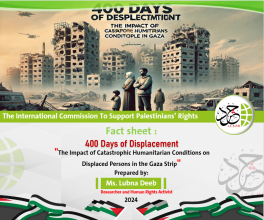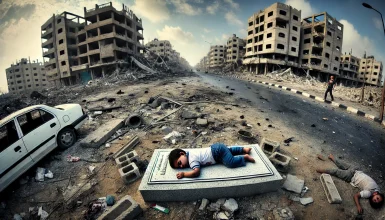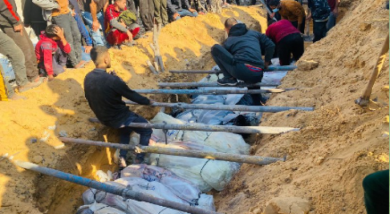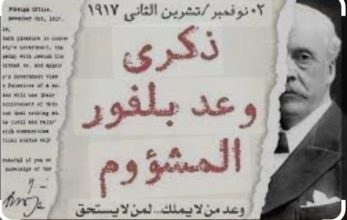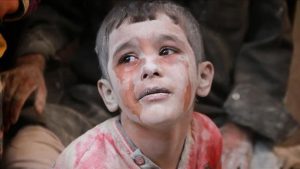
A briefing note on violations of children’s rights in the Palestinian Territories during 2020
Date: 25 Dec 2020
A briefing note on violations of children’s rights in the Palestinian Territories during 2020
The International Commission to Support Palestinians’ Rights (ICSPR) highly appreciates your efforts and your constant desire to intervene in order to protect human rights in general and children’s rights in particular. With reference to the above subject, and as part of our follow-up on the situation of children in the occupied Palestinian territories, we believe it is important to brief you about the grave violations of children’s rights, especially in the Gaza Strip during 2020.
the International Commission for Supporting Palestinian Rights (ICSPR) sent all the institutions of the international community Among them: António Guterres / Secretary-General of the United Nations ,Nikolai Miladinov / United Nations Coordinator of the Peace Process, Michael Lynk / United Nations Special Rapporteur on human rights in the Occupied Palestinian Territory , Tlaleng Mofokeng / Special Rapporteur on the right of everyone to the enjoyment of the highest attainable standard of physical and mental health ,Olivier De Schutter / Special Rapporteur on extreme poverty and human rights. , Saad Alfarargi / Special Rapporteur on the right to development, Anita Ramasastry / Chair of the Working Group on the Issue of Human Rights and Transnational Corporations and Other Business Enterprises, The United Nations High Commissioner for Refugees, World Health Organization , High Commissioner for Human Rights, Human Rights Council and European Union.
Children constitute 53% of the total population in the West Bank and Gaza Strip, and about 3-7% of Palestinian children are classified within the category of the handicapped, as about 42% of them suffer from more than one type of disability, and they suffer from various internal and external violations, for example, the Israeli occupation forces carried out three large-scale military operations in the Gaza Strip, followed by several military escalations, which resulted in killing and wounding hundreds of children.
In addition to the violations committed against child participated in the Great Return Marches, where civil society organizations have documented the deaths of 155 Palestinian children by Israeli forces, using live ammunition or using weapons for crowd control, since 2018. Only three indictments have been issued regarding criminal charges related to crimes. In addition, more than 1048 children were injured throughout the Occupied Palestinian Territories between November 1, 2019, and October 31, 2020.
(177) children lost their shelter after the occupation forces completely destroyed their homes, (1001) children’s homes were partially damaged, while (618) children lost one of their family members, and the occupation forces continued to detain (56) children’s bodies. In addition to the bombing of schools, where (35) educational schools were attacked, which affected the right to education.
The Israeli occupation authorities are also practicing a policy of delaying the arrival of foodstuffs and practicing the policy of the blockade on the Gaza Strip and controlling the Palestinian crossings for 14 years, and thus controlling the materials that enter the Strip, whether food or health materials, building materials or raw materials, which affected all sectors, especially the health sector, which suffers from a shortage of more than 50% of medical supplies, and according to the ICSPR’s follow-up, there are (640) children in the Gaza Strip who are cancer patients, facing severe health conditions, due to the constant shortage of medicines, medical supplies, and diagnostic and treatment devices needed to treat them, and the need to professional doctors specializing in Oncology treatment, the worsening fuel crisis in hospitals and the continuing electricity crisis. The restrictions imposed by the Israeli occupation authorities on the travel of sick children and their companions for treatment abroad and the prevention of the entry of radiological diagnostic devices necessary to diagnose cancerous tumors are among the most prominent obstacles that prevent these children from receiving treatment for their diseases.
In the West Bank, children are exposed to additional violations than the violations children in the Gaza Strip suffer, such as house raids and the arrests campaign, there are about (745) prisoners in 2019, and about (170) children detained in the Israeli occupation prisons during 2020, in addition to the daily arrests. In addition to settler attacks against children with the support of the occupation forces, such as the incident of burning the child Ahmed Dawabsha and his family on 31 July 2015, which caused the death of the child Ahmed Dawabsha and his father, Saeed Dawabsha. And the kidnapping and killing of the child Muhammad Abu Khdeir on 2 July 2014.
As for the internal level, the internal Palestinian division is one of the reasons that led to the increase in the suffering of the Palestinian child, through the disruption of the Palestinian Legislative Council, which constituted a major obstacle to the adoption of laws that were more just and equitable towards children as well as the harmonization of Palestinian laws with international laws and conventions on the rights of the child. The impact of the division next to the Israeli occupation on the internal situation have increased the complications of the rest of the sectors. The health sector was affected, as it suffers from a severe shortage of medicines intended to treat cancer patients, of whom a large proportion of them are children. The shortage was estimated at a deficit of (42%) per month, and ( 30%) of medical tasks, and (55%) for laboratories, at a cost of (640) thousand dollars per month, and it resulted from the failure of the Palestinian Authority to supply medicines and medical consumables and support the ministry’s budget in Gaza. In addition, the World Health Organization in the Gaza Strip declared stopping treatment protocols for cancer patients due to restrictions imposed on the movement of patients to receive treatment abroad.
Since the beginning of 2020, about 1700 patients have applied to obtain a permit to travel, and only 25% of them have received the approval from the Israeli occupation authorities, in addition to a shortage of medicines and specialized devices for other treatments, which resulted in the death of (3) children, including the child Anwar Muhammad Harb, who was suffering from a heart disease, and he died because he was unable to travel through the Beit Hanoun “Erez” crossing to receive treatment at Al-Maqasid Hospital in occupied Jerusalem, despite receiving the medical referral and the necessary financial coverage for treatment.
It has also affected the economic and nutritional conditions of the Palestinian child, where about (70%) of the population of the Gaza Strip is food insecure, (73%) of children under five suffer from anemia, and that 7% of the children are members of poor families. About (97%) of the water sources do not comply with the standards of the World Health Organization and (73%) of the coastal strip of the Gaza Strip is polluted with wastewater.
In fact, we see your humanity as a banner in order to ensure that members of the international community fulfill their obligations towards their citizens, and at the same time we call on you to make more efforts, by taking specific measures that would protect children and ensure their enjoyment of their rights, by putting pressure on the Israeli military occupation authorities as the occupying power, in order to oblige them to respect the rules of international law and international agreements towards civilians living in the occupied territory, including ending the siege and supplying the Gaza Strip with all necessary basic necessities of life, in order to avoid children from the ravages of the collapse of the humanitarian situation in the Strip.
We hope that you will intervene now, children in the Gaza Strip and all Palestinian children deserve to work for them, in order to ensure that they enjoy an adequate standard of living in line with the foundations and standards of human rights, and in a way that guarantees them a decent future.


